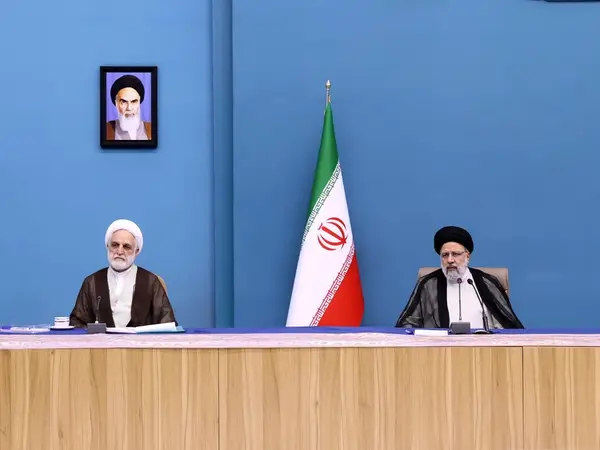A prominent politician in Tehran has suggested that President Ebrahim Raisi may seek another review of four bills allowing Iran to join the FATF conventions.
The FATF (The Financial Action Task Force) is a G-7 initiative to combat money laundering and financing terrorism. The four bills stuck in Iran’s legislative system since 2017 due to opposition by hardliners include measures to join the convention against organized crime, to amend “the anti-money laundering law,” to accept the convention against financial support for terrorism” and a “bill to amend the law against financial support for terrorism.”
The former head of the Iranian parliament’s national Security and Foreign Relations Committee Heshmatollah Falahatpisheh also told Etemad Online that “if it is true that Raisi has now asked Supreme Leader Ali Khamenei to order the Expediency Council to start another review of the FATF bills, then we should be sorry for the country’s national interests as Raisi was one of the opponents of the bills.”
The bills were handed over to the Expediency Council, a group of former officials trusted by Khamenei, for review after it changed hands between the parliament (Majles) and the constitutional watchdog the Guardian Council without any progress.
In addition to the limitations imposed on Iran’s international trade and banking due to US and other international sanctions, adherence to the FATF conventions is essential for international traders. It provides assurance that the funds used by Iran in transactions will not be funneled into money laundering, cross-border organized crime, or terrorism financing.
Hardliners, however, have been strictly opposing the bills saying openly that joining the conventions would bar Iran from sending money to groups such as Hamas, Islamic Jihad and Hezbollah, designated as terrorist groups by key countries.
Falahatpisheh charged that hardliners have been benefitting from illicit trade and financial transaction while Iran has been on the FATF blacklist. He added that Raisi strongly opposed the bills as an Expediency Council member and the head of Iran’s Judiciary. He said that Raisi as President has now realized that joining the FATF and returning to the nuclear deal with the West are necessary to improve Iran’s ailing economy.
Meanwhile, Expediency Council member Mohammad Sadr also acknowledged in an interview on Wednesday that “many of the opponents of the JCPOA and FATF have realized the significance and necessity of the nuclear agreement and the anti-money laundering conventions.
Sadr emphasized that without the FATF, Iran’s existing economic challenges will remain unsolved, and the system is susceptible to encountering new issues.
Some politicians and many commentators and economists have been insisting that passing the bills are essential for conducting financial transactions with the world. Many had also pointed out that even if the sanctions are lifted, Iran will not be able to conduct international trade and banking without accepting the terms of the FATF.
Iran’s radicals and hardliners are being blamed for the impasse in the country’s economy, politics and foreign policy while almost everyone knows that all the decisions originate with Khamenei and dictated to the system. However, former Reformist politician Jalil Rahimi Jahanabadi has called for a powerful reformist minority at the Majles to counterbalance hardliners.
He said: “We need to harness and control the radicals. A powerful reformist minority can have a good impact on the Majles.” It is interesting that the reformist figure is happy only if a minority comes from the reform camp rather than demanding to win the majority in parliament.
Raisi had called for debating the FATF and JCPOA before leaving for New York to take part in the UN General Assembly in September, however, the issue popped up again after the brutal Hamas attack on Israel last week. Iran finds itself in the crosshairs of international criticism for being the main supporter of Hamas. Khamenei was forced to say publicly that the regime played no direct role in the attack.





















